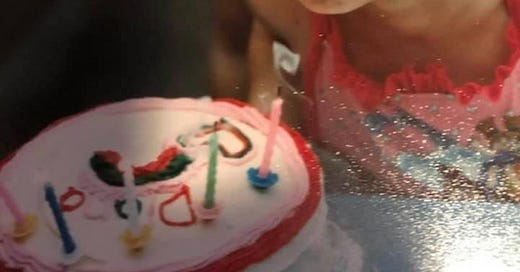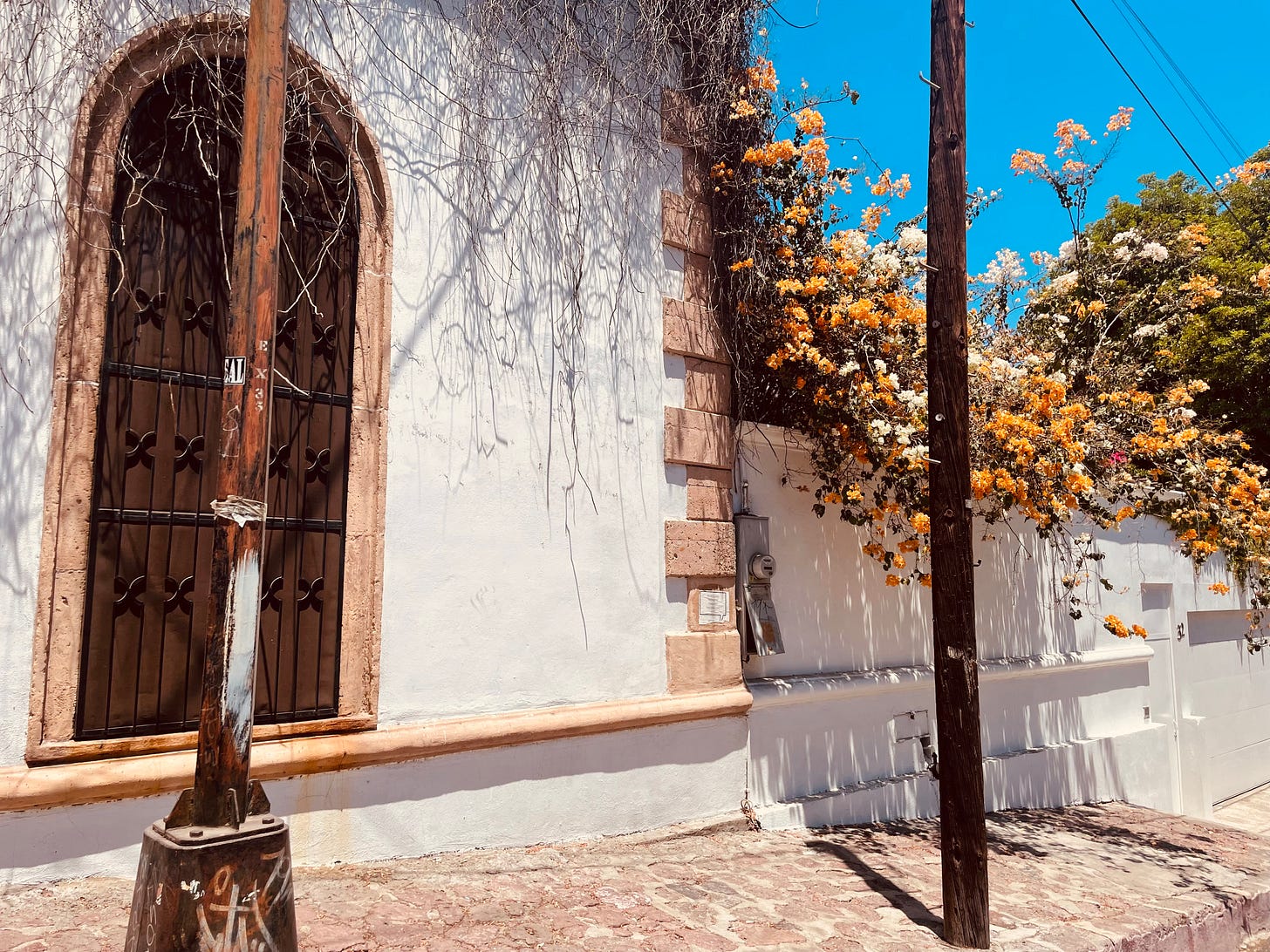Friends,
Maybe (definitely) because of recent current events, I’ve been thinking about the way life can change in an instant. I’ve been thinking about how that works politically, how it works personally, how it works poetically and in narrative.
In a plot-heavy novel, the “instant” can set the whole story in motion (the terrorists infiltrating the party in Bel Canto). In a philosophical novel, the “instant” might introduce a way of thinking (Meursault, in The Stranger, reacting indifferently to news of his mother’s death). When it occurs late in the novel, the “instant” can change our understanding of everything that came before (Daisy running over Myrtle in The Great Gatsby). When it happens at the very end, it can haunt us indefinitely (I’m thinking of The Poisonwood Bible, but I’ll skip the spoiler).
In this country, every generation has its instant—the one that forces the kids to grapple with mortality. Gen Z had the arrival of Covid. Baby Boomers had JFK’s assassination. Millenials had 9/11. My generation had the Challenger.
Now I know that outer space is the domain of men, but when I was a child, it belonged to women. It was the women who waved to us in their blue flight suits, their hair curly like mine, one Jewish like me. I’d written a whole letter to Judith Resnik, the brilliant Jewish astronaut. There were men on the Challenger, too, but I didn’t notice them or learn their names. In my memory, it’s the women who step into the shuttle; who endure the countdown, hearts pounding; who blast off, propelled by fire; who are, 73 seconds later, reduced to a monstrous, grotesque white smoke. All over the nation, newscasters fell silent. Teachers yanked plugs from walls, wheeled televisions away on carts.
When I got home, the only TV was the Challenger, all afternoon and into the evening. Our heroes had died in the sky while we watched. I kept imagining them scared, imagining them exploding. I couldn’t believe that people could explode.
If you weren’t in elementary school in 1987, you might not remember the Challenger jokes:
What does NASA stand for?
Need Another Seven Astronauts.
What were Christa McCauliffe’s last words?
What does this button do?
The explosion had nothing to do with buttons, of course. A whole generation added “O rings” to their lexicon.
Before the tragedy, when it seemed that NASA would continue to send up civilians like Christa McCauliffe, my dad, a gastroenterologist, hoped to study reflux disease in space. He had just mailed in his proposal. “That’s why you got so upset,” my mom tells me.
I try to incorporate her theory into my memory—that my horror that day was not a response to what I saw, or not just a response to what I saw. I have no doubt that her horror was knowing that if NASA accepted his proposal, her husband would be the next one to board a shuttle. But at six, I doubt I understood my dad’s career aspirations. In my memory, that white smoke is the story. It wasn’t like smoke from our barbecue—thin, colorless, characterized by movement. This smoke choked the blue sky, so bloated and fat, it got stuck.
One poem my dad who is not an astronaut can recite from memory is Spring and Fall by Gerard Manley Hopkins: Margaret, are you grieving/Over Goldengrove unleaving? The speaker is observing a little girl crying as the seasons turn. Margaret’s life-changing instant is the “unleaving” of the trees, a symbol of her mortality. In the last two lines, the speaker gives it to her straight: It is the blight man was born for,/It is Margaret you mourn for. But is Margaret really experiencing a life-changing instant? Or is the speaker projecting?

My mom’s interpretation of why the Challenger tragedy shook me is far more interesting, more layered, than mine. It unites the macro with the micro, the infinite world of outer space with the tiny world of our house. But I really don’t remember my dad’s astronaut dreams. I think I simply saw something I was too young to see, just as she, at 10 years old, saw that a president could be shot in the head, that his wife could try to gather the pieces.
Early this week, I returned from Mexico, where I learned that hundreds of years ago in what is now La Paz, the capital of Baja Sur on the Sea of Cortez, the Indigenous people were skilled divers. When the Jesuits arrived, they found the locals covered in pearls they had sourced from mollusk shells.
Imagine people unspoiled by other people—iridescent beads winding around their necks, their arms, their ankles. Imagine them watching the ship approach. Life changing in an instant.
Give us your pearls, said the Jesuits, and we will give you souls.
The Indigenous fought the Conquistadores for years. When the Spanish erected a church, the locals destroyed it. But we all know how the story ends. When the first ship approached, it was already too late.
Perhaps that’s why the life-changing instant compels us, in literature as in life: So many instants have to transpire to lead to the one that traumatizes us. So many plans laid. So many maps drawn. So many errors. So much hubris.
What if we had seen it coming? What if, what if, what if?
Love,
Diana
P.S. A prompt: Write about a recent life-changing instant, and/or tell me about it in the comments.
P.P.S. Two of my closest, most wonderful, most hilarious friends have books coming out this month! One is the beautiful novel Notes On Your Sudden Disappearance by Alison Espach. The other is the (unfortunately timely but) very exciting anthology I Know What’s Best for You: Stories On Reproductive Freedom by Shelly Oria. Please buy one million copies of each.









I always love your insights and humor. This is a piece to give us plenty to think about.
Cheers to your sharing your gift of the written word. The photo at the bar could be @newartisandistillery 🍸🙏🥃